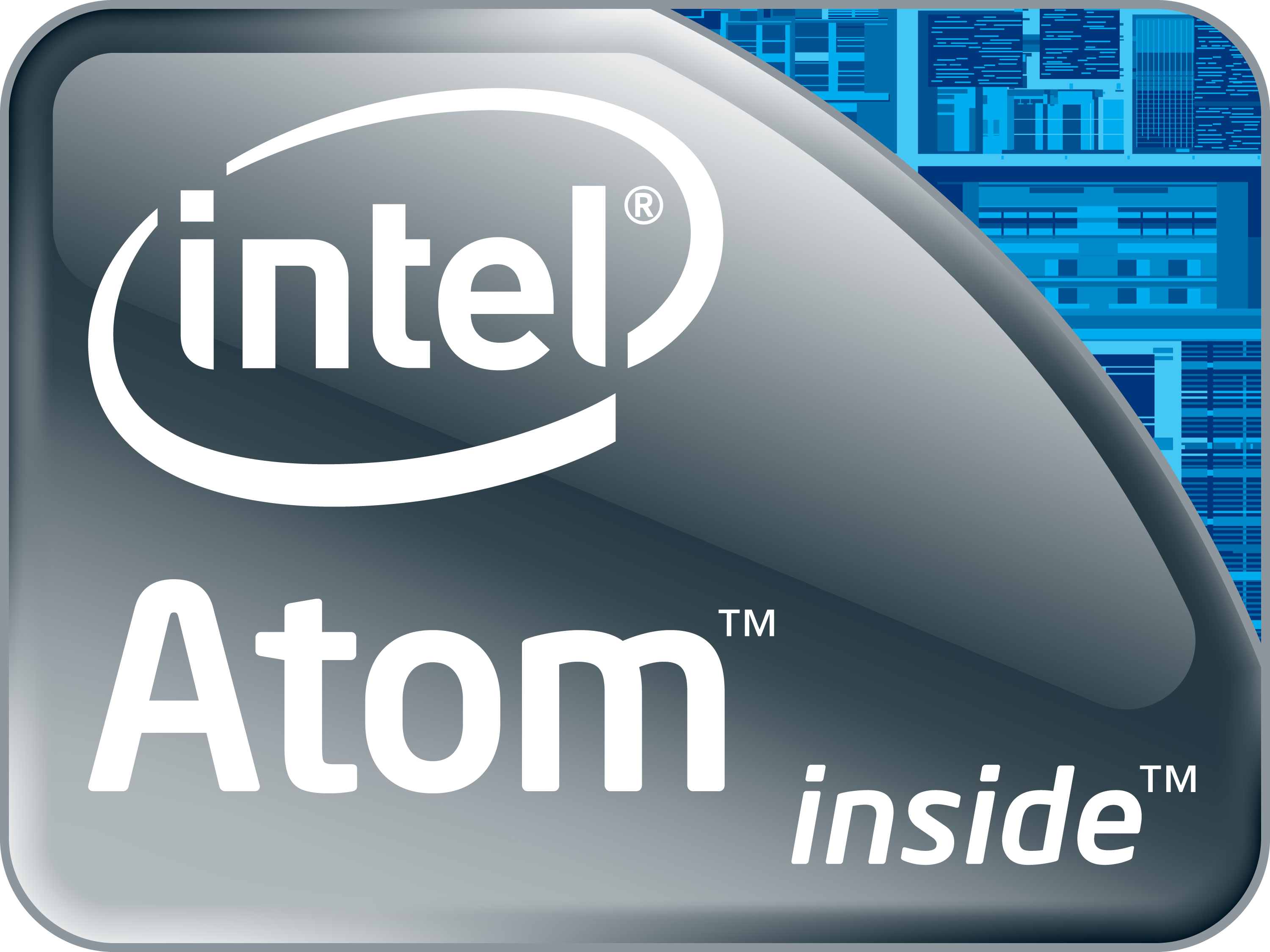Intel is Stepping on the Gas for Atom CPU Plans
New Atom technology every year for the next three years. Get ready for faster Atoms.
Intel's latest desktop and laptop chips are of the Sandy Bridge family, but when it comes to the entry-level price points and netbooks, it's all about the Atom.
The Atom processor family hasn't been getting the love that Intel's desktop-class chips get, but that'll all change. Intel's Executive Vice President Sean Maloney at his Computex address highlighted key milestones and additional details on upcoming generations of Intel Atom processor-based platforms for tablets, netbooks and smartphones.
Intel says that the upcoming Atom processor innovations will actually outpace Moore’s Law, accelerating from 32nm through 22nm to 14nm within three successive years. Improvements from one generation to the next will include reduction in transistor leakage, lower active power and increase of transistor density to enable more powerful smartphones, tablets, netbooks with more features and longer battery life.
Reaching its 100 million-unit milestone this month, Intel is preparing its next-generation netbook platform, codenamed “Cedar Trail.” Cedar Trail is the first netbook platform based on Intel’s 32nm technology, and will bring ultra-thin, fanless designs with new capabilities such as Rapid Start technology which provides fast resume, Smart Connect Technology which enables always updated experience even during standby, Wireless Display and PC Synch, which let users wirelessly update and synchronize documents, content and media across multiple devices. In addition, the new platform will enable more than 10 hours of battery life and weeks of standby. Cedar Trail will support leading operating systems, such as Microsoft Windows, Google Chrome and MeeGo.
Get Tom's Hardware's best news and in-depth reviews, straight to your inbox.
-
scuba dave 3 years from 32nm to 14nm? I don't know if I'd trust Intel's atom's if they are gonna upgrade that fast.. Especially when they mess up their 2 year cycle so often, seemly. :/Reply -
DjEaZy ... atom is a waste of silicon and it will stay that way... why? intel haz no good GPU!!!Reply -
burnley14 GeekApprovedCedar Trail will be outclassed by AMD, just like Atom is now.Which is why AMD has sold far more units than the 100 million Intel just celebrated, right? Right?Reply -
zooted burnley14Which is why AMD has sold far more units than the 100 million Intel just celebrated, right? Right?He said outclassed, meaning it will remain the superior of the two, not the better selling.Reply -
enewmen I'm not a hardware engineer, but by rushing through 32-22-14nm seems like a VERY difficult way to make a chip efficient and perform well!Reply
Just seems much easier to underclock/fewer cores/less cache an Ivy Bridge/Haswell or make a very different architecture more like the ARM. Is the x86 so inherently inefficient (or not well suited for small devices)? I'm Missing something basic?
Yes, I also think the Cedar Trail is only a modest improvement over the Pineview and will get spanked just as easily. -
> intel haz no good GPU!!!Reply
Could you name any tasks other than gaming that require a 'good GPU' on an Atom system? And gaming is much less important than children think.
-
Kryan zootedHe said outclassed, meaning it will remain the superior of the two, not the better selling.Toyota sell more cars than BMW and Mercedes together...does that mean Toyota's cars are better than ze German's vehicles? I think not.Reply
(that was me agreeing with zooted btw) -
robisinho is Oak Trail a Cedar Trail processor? if so, I can see why they are moving Atom up to the first-gen fabs at each node... Oak Trail is behind ARM for this year's early Android systems, by the time it comes out it will be pushing less than half the benchmark scores.Reply -
jimmysmitty enewmenI'm not a hardware engineer, but by rushing through 32-22-14nm seems like a VERY difficult way to make a chip efficient and perform well!Just seems much easier to underclock/fewer cores/less cache an Ivy Bridge/Haswell or make a very different architecture more like the ARM. Is the x86 so inherently inefficient (or not well suited for small devices)? I'm Missing something basic?Yes, I also think the Cedar Trail is only a modest improvement over the Pineview and will get spanked just as easily.Reply
Yet it has worked out well for their desktop lineup. Intel releases a new arch and then a new porcess within two yesr. They are basically going to do the same with Atom. And I think that once they move Atom to 22nm it will be a major game changer due to the 3D tri gate tech. They can stack memory on the die which will eliminate the need for memory anywhere elese, make it much faster since it will be on the die and cut system costs.
Add that to the extra power savings that 22nm will bring plus the advanced power states Atom will have at 32nm (it can turn off parts of the CPU that is not needed when in use).
KryanToyota sell more cars than BMW and Mercedes together...does that mean Toyota's cars are better than ze German's vehicles? I think not.
Toyota has had the best quality rating for a while. Ford is actually rapidly coming upon that, due to them utilizing their European designs more and VW, a German car maker, now ahs some of their cars manufatured in China.
Of course better is all about the person. Some people don't take care of their cars. My Ford COntour is 12 years old and the most I have had to do was replace the upper and lower air intake gaskets.

